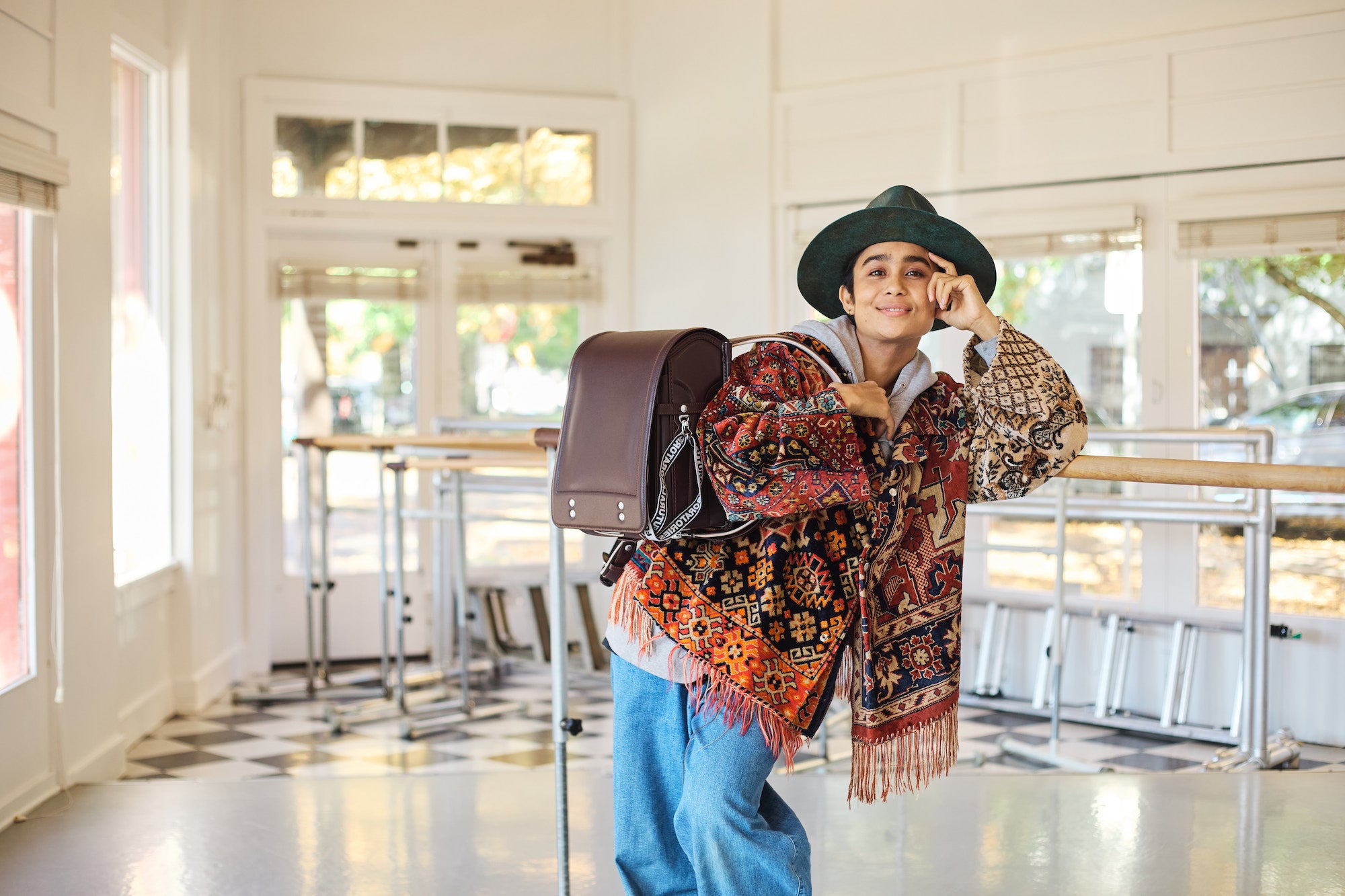UNO, an internationally acclaimed dancer who has made waves in both Japan and the United States. Starting her professional career in her mid-teens, based in Tokyo, she quickly rose to prominence as a sought-after back up dancer and choreographer for top stars. In recent years, she has shifted her role to become a director and planner, overseeing events and festivals comprehensively. For UNO, dance serves as a powerful tool to bridge different cultures, generations, and all kinds of barriers. Since her early years, dance has been her form of self-expression and a means to communicate with the world.


Going Beyond the Dance Studio
On a sunny afternoon, with soft rays of the sunlights streaming through the window, UNO invited us to her dance studio called 'Steps,' which serves as her home base in Portland. While instructing the studio's faculty, she is also embarking on a completely new endeavor that transcends the conventional notion of a dance studio. ”I don't want it to be a closed-off space just for dancers. In the neighborhood, there are small businesses, artists, people of all ages and backgrounds living their lives, creating a unique culture through the interplay of various elements. Dance is just a part of that, but it can also serve as a bridge that connects these disparate elements. Our aim is not just a dance studio; it's to create a community center that enriches the lives of local residents and small businesses, fostering a sense of togetherness and mutual prosperity.”


Embracing the Unknown
Several years ago, UNO made the bold move to relocate from Tokyo to Portland, a city she had never visited before, with no acquaintances waiting for her. It was a decision guided purely by intuition, driven by the anticipation of something exciting. She knew there would be ballet companies and contemporary dance scenes. It felt like peeling back the layers of a dancer's world, knocking on various doors, even exploring the underground. Reflecting on that time, UNO describes it as a sensation of flipping through each layer, one by one, immersing herself in the vibrant community of scattered dancers.
"I have a hobby of making friends," UNO explains. "If I have free time, I meet interesting people or visit intriguing shops to strike up conversations. Through these interactions, naturally, connections form with people and things I enjoy. What I want to express through dance is this organic fusion that exists as an extension of everyday life. While everyone pursues their individual passions, wouldn't it be more fun to hold hands and dance together? That's the kind of feeling I had, and it has shaped my journey of engaging with diverse communities in both Tokyo and Portland, ultimately turning it into my work."


Stirring Imagination and Evoking Stories
"While checking the weekly timetable tucked inside the flap of my Randoseru, I nostalgically recall the days when I would switch out the bag's contents. Nowadays, I keep notes for choreography and directing inside, making it easily accessible for reference." UNO shares.
For UNO, who grew up shuttling between Japan and overseas, the Randoseru represents an iconic symbol of Japan. It not only elevated her mood to carry it to school but also provided a sense of comfort. As an adult, she realizes the durability of its construction and how it becomes even more cherished over time due to its aging process. "My wardrobe consists mostly of vintage or second-hand clothing and items crafted by artists and artisans. I'm drawn to things that spark imagination and tell stories. Tsuchiya bags can be considered as one-of-a-kind creations made possible through collaboration with in-house craftsmen," she adds.
Furthermore, lessons learned from friends she met in Portland have become a criterion for her choices. "I now consider factors like whether I can take care of the item myself or if there are repair shops available. Seeing friends proudly use and repair things passed down to them by their grandmothers. I appreciate the shared values. It's really cool to be able to embrace such a perspective," she concludes.



Creating Inclusive Spaces Open to Everyone
"The foundation of my identity today was shaped by the support of the senior dancers I met through dance, and giving back is an integral part of what I can do," UNO explains. During her childhood, where she lacked a sense of belonging at home, dance became the natural conduit that connected UNO with society and community. It is precisely for this reason that she aims to make dance, as a form of expression that can be done with just one's own body, accessible and inclusive to anyone. "It is disheartening to see opportunities lost due to economic or physical constraints. While it's admirable to strive for dance mastery and competition success, my aspiration is for dance to become a part of someone's everyday life, enriching their days and providing courage. That's why, as I continue to dance, I also work towards creating spaces where barriers of dance are transcended, and people can connect with one another," she concludes.
UNO @unoboooo















